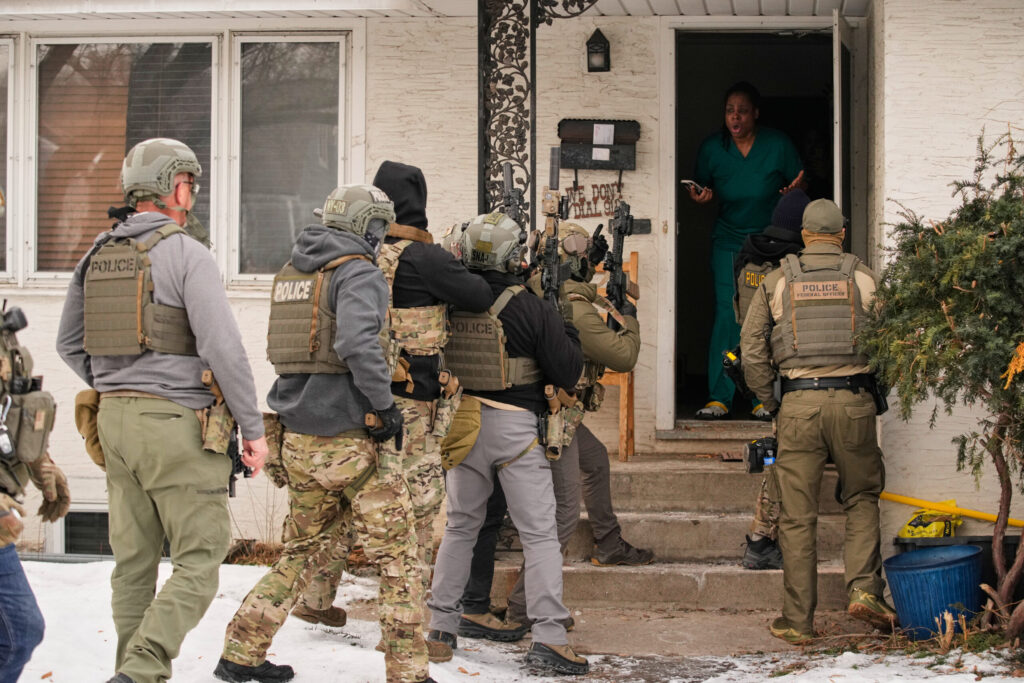? Colorado’s doctor-assisted suicide risks legal dispute if voters approve
Popular opinion surveys show Colorado is likely to be propelled into an uncertain area of law next week when voters decide whether to allow doctor-assisted suicides for terminally ill persons.
Sixty-five percent of Denver-area registered voters surveyed in a Ciruli Associates poll in September said they would vote for the legalized suicides. Twenty-five percent opposed it.
If Proposition 106 wins approval, Colorado would become the fifth state to allow doctor-assisted suicide.
Patients with less than six months to live could request lethal drugs from their doctors under the measure.
Opponents of doctor-assisted suicide say low-income patients might feel pressured to end their lives sooner than persons with more resources. One of them is U.S. Rep. Doug Lamborn (R-Colorado Springs).
“I have serious concerns and objections with Proposition 106 and must oppose it,” Lamborn told The Colorado Statesman. “For instance, the language says that a person must be of ‘sound mind’ in order to make the decision to terminate their life, yet it does not require a psychiatrist or mental health professional be involved in the decision. Also, in states where physician-assisted suicide is already legal, insurance companies have started to prey on individuals with terminal illnesses seeking to stop expensive medication coverage and encourage the use of cheaper, life-ending drugs.”
Oregon health data shows the number of prescriptions for lethal drugs, such as Secobarbital, has risen since the state Legislature approved doctor-assisted suicide in 1994. In 2015, there were 218 people who received the prescriptions, compared with 155 a year earlier.
California, Vermont and Washington state also allow doctor-assisted suicides. Montana and the District of Columbia are considering similar proposals.
Proposition 106, also known as the End-of-Life Options Act, runs the risk of “normalizing a culture of suicide” in Colorado, Lamborn said.
“The elderly and the indigent are, unfortunately, ripe for these sorts of abuses, exploitations and erosions of care,” he said.
Colorado’s right-to-die law was modeled on the law in Oregon, which was the first state to approve doctor-assisted suicide.
To be eligible for a prescription of the lethal medication, the proposed Colorado End-of-Life Options Act requires that terminally ill persons:
A leader in support of Proposition 106 is the nonprofit advocacy group Yes on Colorado End-of-Life Options.
“For most people with a terminal illness, hospice and palliative care are the right fit,” said Holly Armstrong, spokesperson for Yes on Colorado End-of-Life Options. “But sometimes even the best care cannot relieve pain and suffering. People in that situation should have a range of options. This proposal provides those who are in their final months of a terminal illness with more options so they can make the decision that is best for them and their illness.”
California began allowing the suicides this summer but now the state is confronting an emotionally charged lawsuit by a medical ethics association and a group of doctors.
The American Academy of Medical Ethics and several doctors are seeking an injunction to block the law, saying it raises constitutional issues about the standard of care.
The plaintiffs in Dr. Sang-Hoon Ahn et al. v. Michael Hestrin argue the California law lacks a rational basis because a doctor’s prediction of death in six months is a subjective judgment that could be wrong.
They also say the law dangerously omits the need for a mental health specialist to examine a patient seeking assisted death unless there is previous evidence of mental illness. As a result, their requests for lethal medication could be a sign of mental illness rather than a well-reasoned decision.
“The resulting law purports to give certain terminal patients an ‘option,’ but the combination of the act’s flaws demonstrates that many labeled individuals will have only the illusion of choice,” the plaintiffs’ complaint says.
The lack of a review or investigation after the assisted suicides creates a risk the patients’ deaths could result from coercion or undue influence, the doctors say. The state classifies the deaths as “non-suicides.”
Other doctors, such as Fort Collins-based Cory Carroll, say Colorado’s doctor-assisted death law has enough protections built into it to avoid coercing vulnerable persons into suicide.
“The likelihood would be lower than without the law,” he said. “There are unscrupulous family members who want mom and dad to die early because they want the money.”
Dr. Carroll is a family medicine doctor who testified last February before the Colorado General Assembly’s House Judiciary Committee on doctor-assisted death.
His testimony described an 86-year-old patient with severe spinal stenosis who was nearly blind. His wife died a year earlier in a nursing home. The man ended his life with a gunshot wound to the head rather than face a slower death in a nursing home.
“Death is non-negotiable and at times the only way to relieve pain and suffering,” Dr. Carroll said in his testimony. “The historical record shows with the other states that have adopted similar legislation, the actual implementation of medication to hasten death is very small and there is not widespread abuse or sliding down any slippery slope.”
His opinion agrees with a majority of the Colorado Medical Society, where a survey of members this year showed 56 percent favored doctor-assisted suicide but 35 percent opposed it.
Among the experts who disagree is Margaret Dore, a Seattle attorney who heads an advocacy organization called Choice is an Illusion. The group describes itself as a “human rights organization working to keep assisted suicide and euthanasia out of your state and out of your life.”
The group opened a website last month under the name Choice is an Illusion Colorado designed to advocate against Proposition 106.
Dore said in a statement that two of her clients appeared to be pressured by other persons to choose doctor-assisted suicide.
“If Proposition 106 becomes law, there will be new lethal paths of elder abuse, which will be legally sanctioned and hidden from view,” Dore said. “People with years, even decades to live, will be encouraged to throw away their lives.”
So far, fundraising for the political campaign on Proposition 106 favors the supporters.
By mid-October, supporters raised $5.3 million while opponents, led by the Archdiocese of Denver, raised $1.8 million, according to the Colorado Secretary of State’s office.











